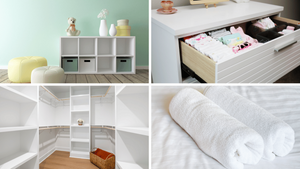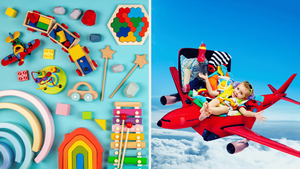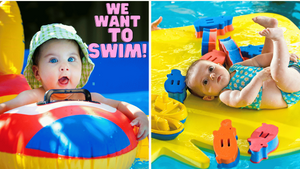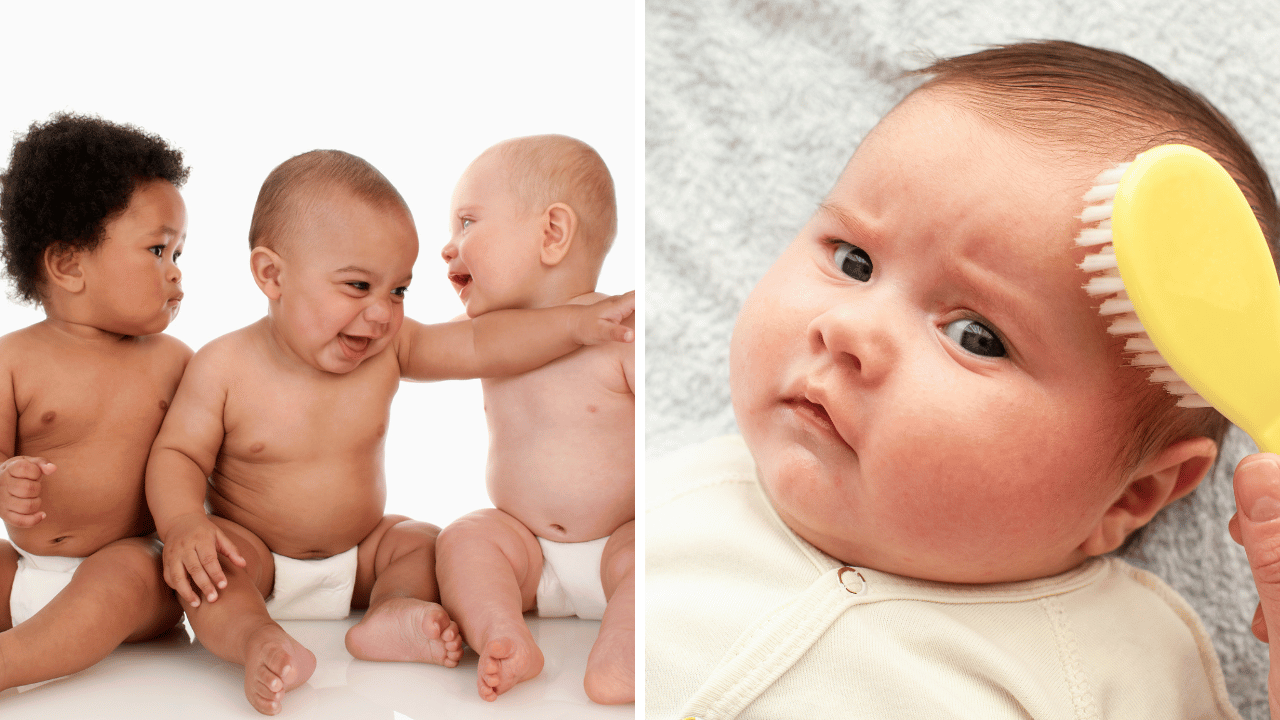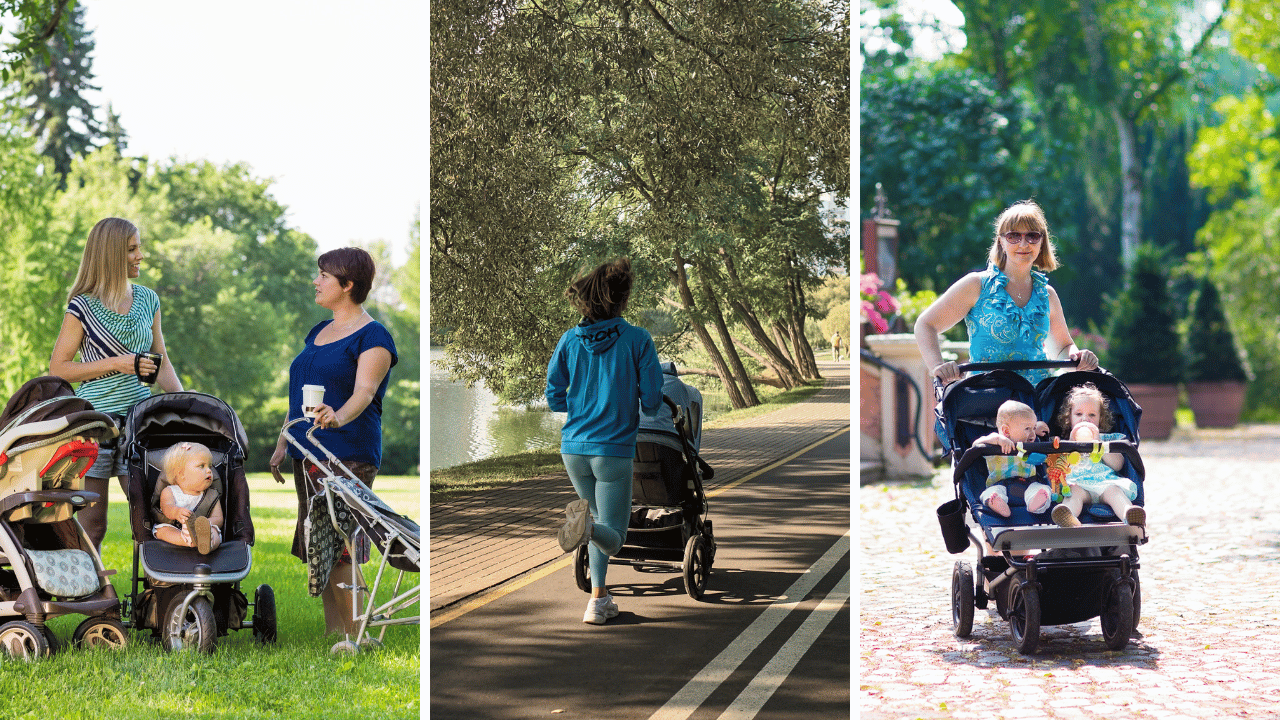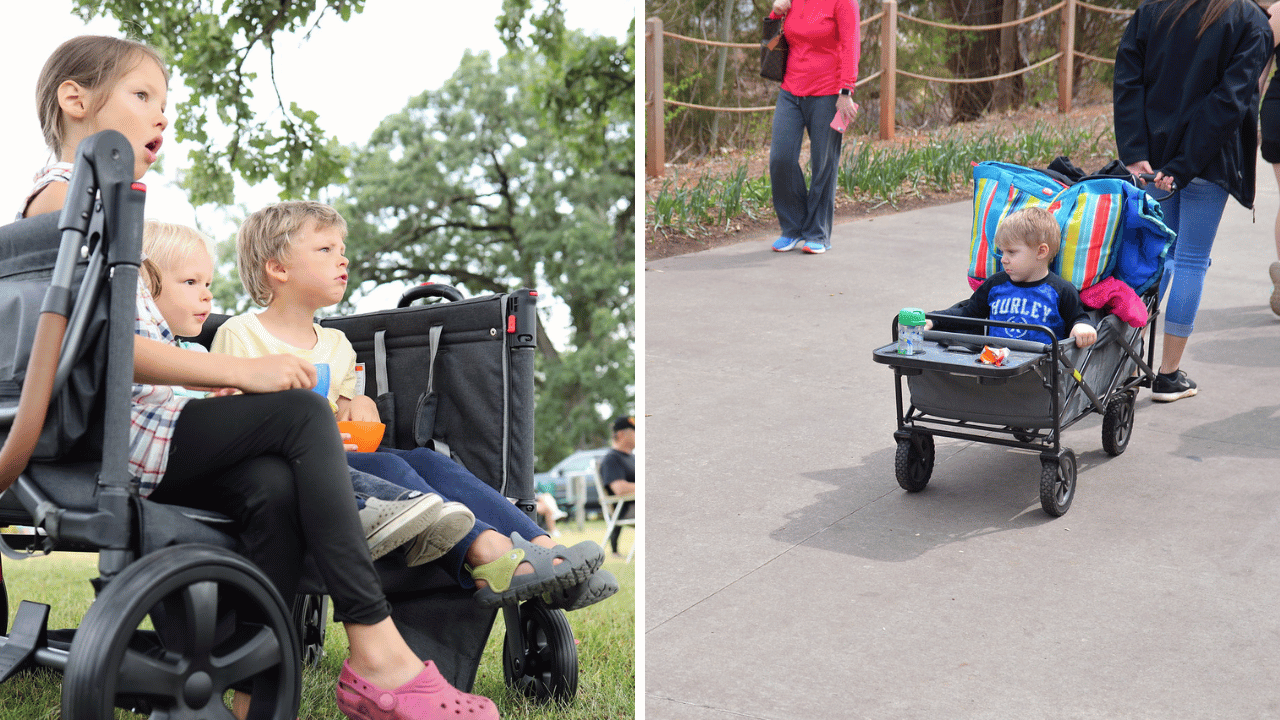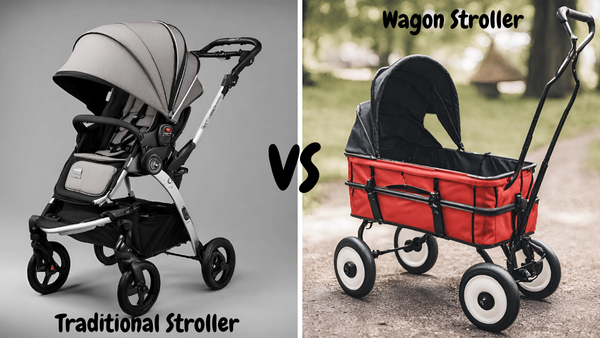When it comes to choosing toys for babies, wooden toys stand out as a timeless and beneficial option. Not only do they offer a sensory-rich play experience, but they also provide numerous developmental benefits for little ones. In this article, we'll explore why wooden toys are an excellent choice for babies, from their ability to stimulate the senses to their environmentally friendly nature. Discover the magic of wooden toys and how they can nurture your baby's growth and imagination.
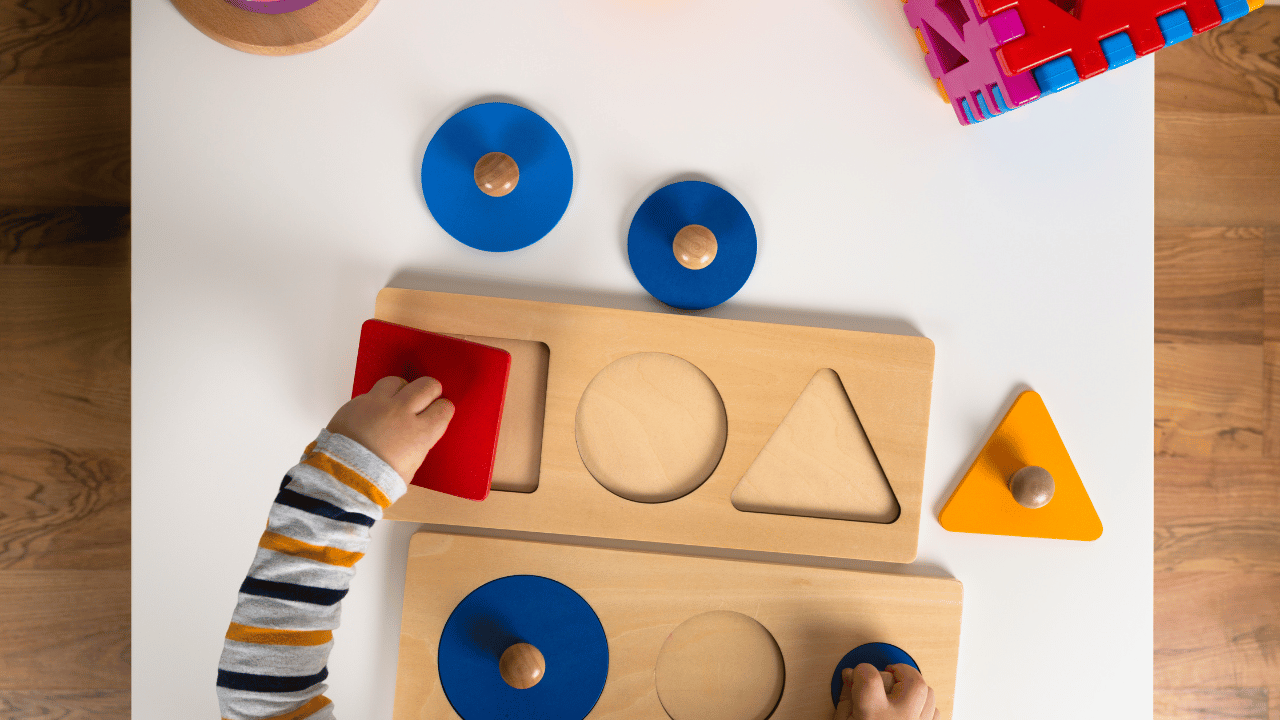
The Many Benefits of Wooden Toys
Sensory Stimulation and Development: One of the key advantages of wooden toys is their ability to engage multiple senses. The smooth, warm texture of wood appeals to a baby's sense of touch, promoting sensory exploration and tactile development. Unlike plastic toys, wooden toys have natural textures that invite babies to touch, feel, and explore each surface area, stimulating their curiosity and enhancing sensory integration skills.
Promoting Creativity and Imagination: Wooden toys encourage open-ended play, which allows babies to use their imagination and creativity. Simple shapes and designs provide a blank canvas for young minds to build, stack, and create their own narratives. By relying on a child's imagination rather than pre-programmed features, wooden toys foster independent play, critical thinking, and problem-solving skills.
Environmentally Friendly Choice: In an era where sustainability is paramount, wooden toys shine as an eco-friendly alternative to plastic toys. Made from natural, biodegradable materials, wooden toys have a significantly lower environmental impact. They are free from harmful chemicals commonly found in plastic toys and contribute to reducing plastic waste. Additionally, wooden toys often have a longer lifespan, making them a durable and sustainable investment.
Age-Appropriate Wooden Toys for Babies: As your baby grows, there are various types of wooden toys that cater specifically to their developmental stages. Here are some age-appropriate options:
Teething Rings: Wooden teething rings provide a safe and soothing relief for teething babies. Their natural texture and non-toxic finish make them a popular choice among parents.
Rattles and Grasping Toys: Wooden rattles and grasping toys are designed to enhance hand-eye coordination and fine motor skills. Their gentle rattling sound and interesting shapes captivate babies' attention.
Stacking Toys: Stacking toys made of wood help babies develop spatial awareness, hand-eye coordination, and problem-solving skills. They also introduce early concepts of balance and cause-and-effect relationships.
Shape Sorters: Wooden shape sorters with various shapes and corresponding holes promote cognitive development and shape recognition. Babies learn to match and fit the different pieces, enhancing their problem-solving abilities.
Fine Motor Skills: Fine motor skills are abilities that involve the coordination and control of small muscle movements, such as those found in the hands and fingers. Wooden toys can be an excellent tool for developing these important skills because of their size and shape. Simple wooden rattles or blocks with different shapes and sizes encourage children to match, stack, construct, sort, and manipulate the toys, leading to improved fine motor skills.
Gross Motor Skills: Gross motor skills are movements that involve larger muscles in the body, such as those used for walking or jumping. Wooden toys can help children develop these important abilities by providing them with engaging, physical activities like pushing a pull toy forward or riding on a wooden balance bike.
Problem-Solving Ability: Toys made of wood typically require a bit of problem solving in order to use them. Whether it's a shape sorter or a puzzle, wooden toys are designed to challenge young minds and help develop logical reasoning skills. With each task mastered, children build confidence and their ability to tackle more difficult challenges.
Creativity: Wooden toys can also help children develop their creativity. Activities like building blocks or constructing play sets with wooden planks encourage kids to think outside the box and use their imaginations. These types of activities help to foster a love of learning and creative expression, setting the foundation for future innovative thinking.
Developmental Benefits of Wooden Toys
Wooden toys are not only fun and aesthetically pleasing, but they also provide a range of developmental benefits that digital and plastic toys simply cannot match. The natural textures, shapes, sizes, and colors of wooden toys can help children learn important fundamentals while simultaneously encouraging imaginative play and developing problem-solving skills. Wooden toys can also be passed down from generation to generation, making them a smart investment for parents.
Plus, thanks to modern manufacturing techniques, wooden toys can now come in a variety of shapes and sizes that offer interactive activities designed to help children develop their physical, cognitive, and creative skills. From spinning tops to shape sorters, wooden toys are the perfect companion for any child on their journey from infancy to adulthood.

Cognitive Development Through Wooden Toys
Wooden toys are a great way to promote cognitive development. By encouraging problem-solving techniques, such as matching shapes and colors, wooden toys help expand children's understanding of the world around them. Puzzles can also help develop memory retention and logical reasoning skills, while construction sets can foster creativity and encourage imaginative play.
In addition to helping children make connections between objects and ideas, wooden toys can also help promote early literacy skills. For example, some wooden block sets are designed with letters on each side that offer children the opportunity to identify colors and shapes while learning their ABCs.

Creative Play With Wooden Toys
Play is an important part of a child's development, and wooden toys can provide fun and creative ways for kids to explore the world around them. By playing with these timeless creations, children can develop problem-solving skills and build confidence in their abilities.
Wooden toys also last longer than plastic or digital toys, meaning they are more likely to be handed down from one child to the next, ensuring that these beloved creations are enjoyed for generations.
From shape sorters to pull toys and puzzles, wooden toys provide an engaging and unique experience that helps children develop physical, cognitive, and creative skills. These timeless toys offer a variety of interactive activities designed to help young minds explore the world around them while growing their abilities in problem-solving, creative thinking, and more.
Whether you are looking for a special gift or something to spark your child's imagination, wooden toys are the perfect companion on their journey from infancy to adulthood.

Unique Wooden Toy Ideas
Wooden toys are a great way to get your child’s creative juices flowing. Here are some ideas for wooden toys that will help spark their imagination and give them hours of fun:
- Pull Toys – Classic pull toys like ducks or trains can teach children about cause and effect, as they watch the toy move when pulled along on its string.
- Wooden Puzzles – Puzzles can help children develop problem-solving skills, while providing them with hours of fun. Choose a puzzle that is at the right difficulty level for your child and watch them work it out!
- Building Blocks – Building blocks are a timeless classic when it comes to wooden toys. They encourage creative play and allow kids to build structures, vehicles and even animals with the blocks.
- Shape Sorters – Shape sorters are a great way to teach children about shapes, colors, and sorting concepts.
The Power of Pretend Play with Wooden Toys
Wooden toys are a great way to open up the world of pretend play. Pretend play helps children develop their imagination, while also fostering social and emotional development. From dolls to wooden kitchens and tool sets, these types of toys can help kids explore different roles in life and understand how people interact with each other.
There’s no denying the importance of wooden toys in helping children to develop essential skills. Whether they are playing with blocks, puzzles or pretend play sets, these timeless toys offer a variety of interactive activities designed to promote physical, cognitive, and creative development.
Plus, wooden toys can be passed down from generation to generation – making them a smart investment for parents who want to give their kids the best chance of success.
Safety Considerations
While wooden toys are generally considered safe, it is essential to ensure they meet appropriate safety standards. Look for toys with smooth edges, non-toxic finishes, and securely attached parts. Regularly inspect wooden toys for any signs of wear or damage to prevent potential hazards.
Wooden Toys FAQs
Are wooden toys safe?
Yes, wooden toys are usually considered safe for children. Most wooden toys are made with non-toxic materials and finished with a natural or food-grade oil to protect against splinters. It’s important to check the labels of any toy you purchase to ensure that it is age-appropriate and has been safety tested. Additionally, if your child has a tendency to put things in their mouth, be aware that small parts of wooden toys may pose a choking hazard.
How can I properly care for wooden toys?
Wooden toys should be cleaned periodically to remove dust and dirt. You can use a damp cloth with natural cleaning products or mild soap and water to safely wipe them down. Make sure the toys are dry before returning them to the play area.
Additionally, it’s important to inspect wooden toys for cracks, splinters or other signs of wear and tear. If any damage is found, you should repair the toy or discard it.
What are the benefits of wooden toys?
Wooden toys offer a variety of benefits for children, including promoting physical, cognitive, and creative development. Puzzles can help develop memory retention and logical reasoning skills, while construction sets can foster creativity and encourage imaginative play. Pretend play sets help children explore different roles in life and understand how people interact with each other, while toys like pull-alongs teach them about cause and effect. Wooden toys are also more likely to be handed down from one child to the next, making them a smart investment for parents.
Final Thoughts
Wooden toys have many advantages that make them a great choice for children’s play time. Choosing wooden toys over plastic or electronic ones is a great way to encourage fine and gross motor skills, cognitive development, and boost creativity.
A child's development in these areas is essential to their happiness and healthy growth. As parents or caregivers, it is up to us to ensure that the learning materials our children utilize are of good quality.
Ultimately, wooden toys are an excellent tool for fostering your little one's development in multiple ways while also being more eco-friendly than other types of toys.
Encouraging them to use wooden toys during their playtime will bring new opportunities for learning and help foster the habit of wisely utilizing natural resources from across the world.


